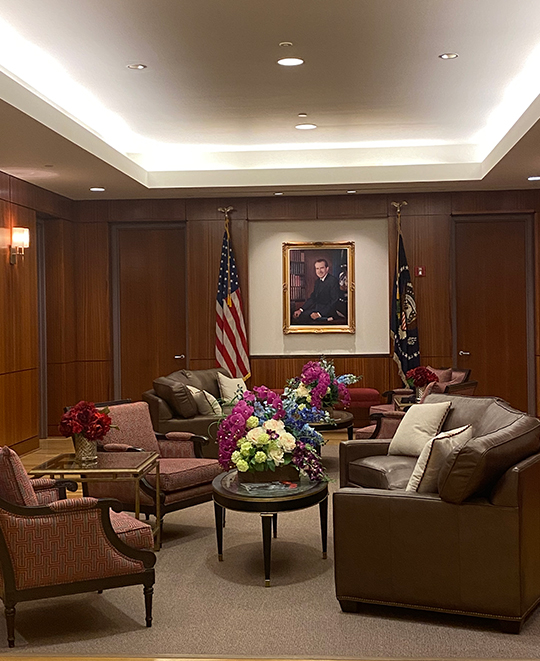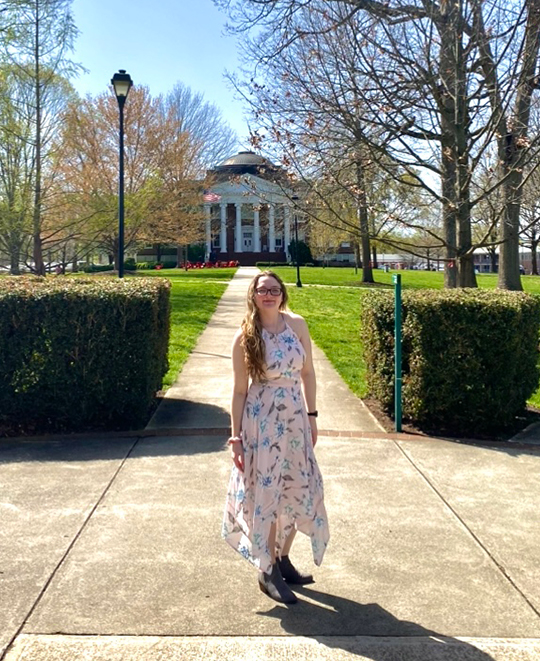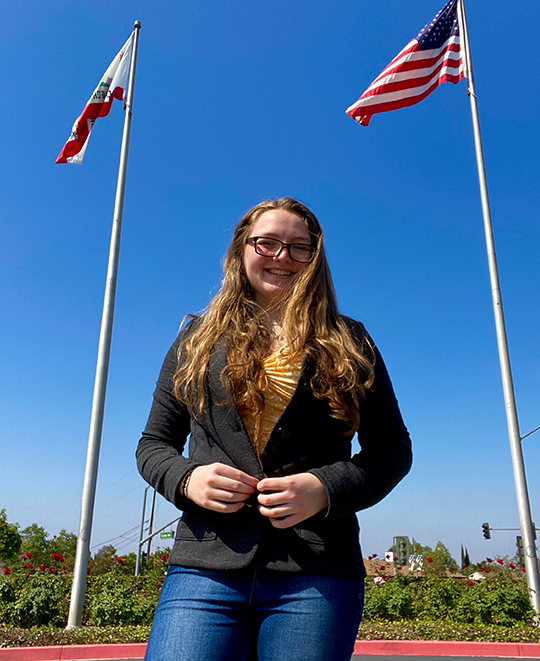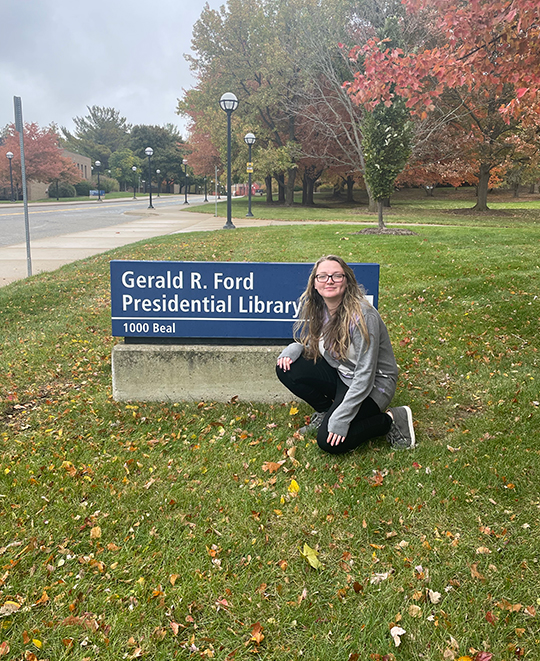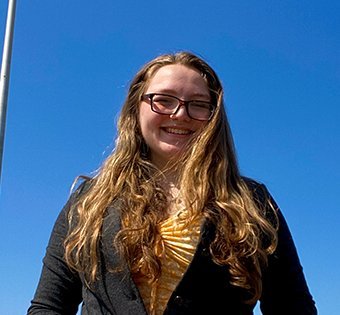
Next step: M.A. in history at the University of Miami
At Ohio Northern University, Jennifer Ulmer discovered how far her inquisitive mind could take her.
After graduation, the history major embarked on a path she never envisioned for herself as a college freshman. Instead of becoming a high school social studies teacher, she is attending the University of Miami for a master’s degree in history, on course to obtain her Ph.D. and become a collegiate-level historian/professor.
She says, without a doubt, she never would have uncovered her passion for historical research if she had attended a large public university.
At Northern, she found faculty mentors who helped her realize she loved asking novel questions and she had the intellectual heft for the high-level research needed to find the answers.
“The experiences I got at ONU, I never would have gotten anywhere else,” she says. “It has been super cool to have been able to do the research by myself and be confident in that because I had the support system here.”
Ulmer’s “oma” (grandma) inspired her interest in history. She emigrated to the U.S. at age 19 at the end of World War II as a refugee escaping the communist regime in East Germany. Her oma’s reticence to talk about her wartime trauma only fueled Ulmer’s desire to learn all she could about the past.
“There’s an old saying that history repeats itself,” says Ulmer. “My interest in history stemmed from my wanting to understand what had happened before me, and to see how I could change the future.”
Ulmer graduated from a large public high school north of Cincinnati where it was easy to be invisible. She remembers the class valedictorian started her commencement speech with the words: “Hi, for those who don’t know me, we went to high school together.” So, ONU—a smaller university that valued relationships—seemed idyllic to Ulmer.
She enrolled at ONU intending to become a social studies teacher, but a histography course her sophomore year changed her mind.
Histography is the study of historical writing, and Ulmer found she enjoyed analyzing and critiquing the way that historians research and write about events from the past.
As part of the course, she stumbled upon a topic for her senior capstone. She became interested in America’s first “War on Drugs” during the presidential administration of Richard Nixon. In particular, she was intrigued by a little-studied anti-drug measure called Operation Intercept that Nixon launched in the fall of 1969.
“Nixon shut down the border between Mexico and the U.S., he ordered search and seizures, and changed FAA regulations. The U.S. Navy and U.S. Marines were activated, so it was this huge event but there was very little research on it,” explained Ulmer.
Dr. Rob Waters, associate professor of history, encouraged Ulmer to dive into the topic. “He believed that I had come across a gold mine (in terms of a research opportunity) and he believed in the possibilities of my work,” said Ulmer.
With Waters’ assistance, Ulmer received funding from the Getty College Opportunity Fund to spend a week in Yorba Linda, California, at the Richard Nixon Presidential Library and Museum.
For one week, she feverishly combed through dozens of boxes of records at the Nixon Library in search of any materials related to Operation Intercept. She emailed back and forth with Dr. Waters, who provided invaluable insight on what might be important for her research.
Three thousand pages of notes and pictures of documents later, she returned to ONU and proceeded to spent countless hours organizing her research and writing a paper on Operation Intercept that provided fresh insights on the reasoning behind America’s first “War on Drugs.”
When she began her project, Ulmer was sure that Nixon had launched his anti-drugs initiative as retribution to the hippies, African-Americans and other who opposed him. “Nixon was well-known for his political opposition, so I was convinced this was about targeting,” she said.
And in fact, most existing research studies which has been written before the documents on Operation Intercept were declassified in 2010, suggested this was the case. Ulmer’s research, however, uncovered that Nixon and his administration launched their war on drugs out of a fear that the drug culture would corrupt the white youth of America.
The spring of her senior year, she presented her research at a history conference at the University of Lynchburg in Virginia, and she is hoping to eventually publish her findings.
At the University of Miami, she plans to pivot her studies to early American history.
“I just love the inquisitive nature of it (historical research). One of my favorite things to do is to ask questions that no one has asked before. And, I found that I am really good at doing that,” she says.
She is grateful that ONU opened this path for her. “My ONU experience was absolutely monumental, just in terms of what I envision is possible for myself and what I can do in the future.”
